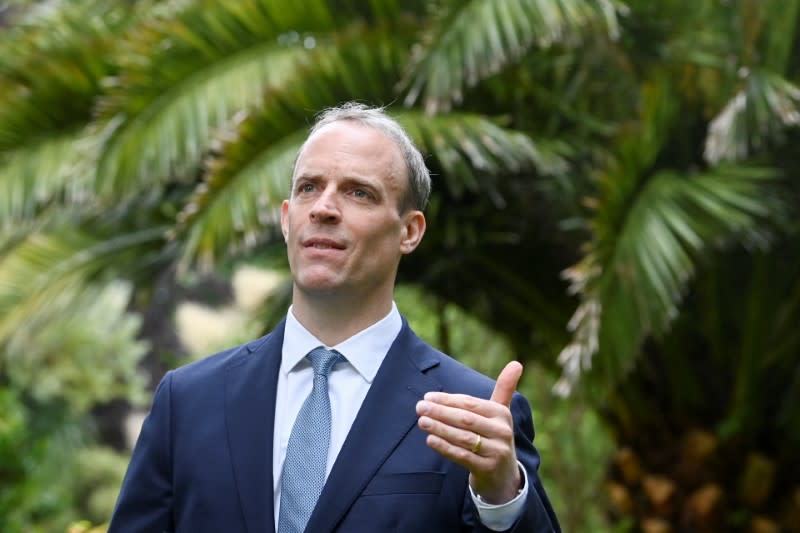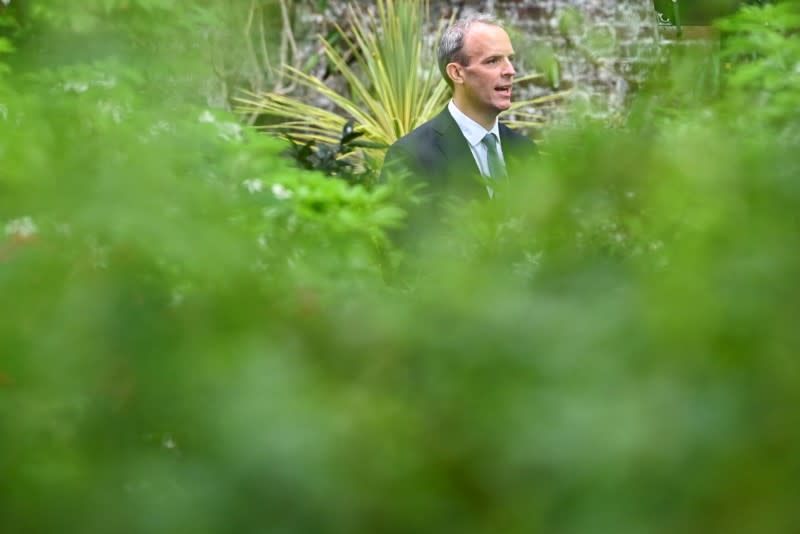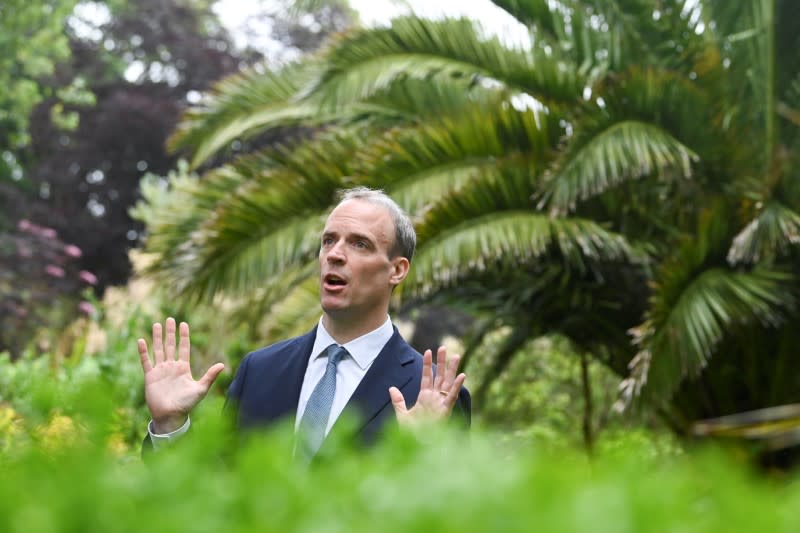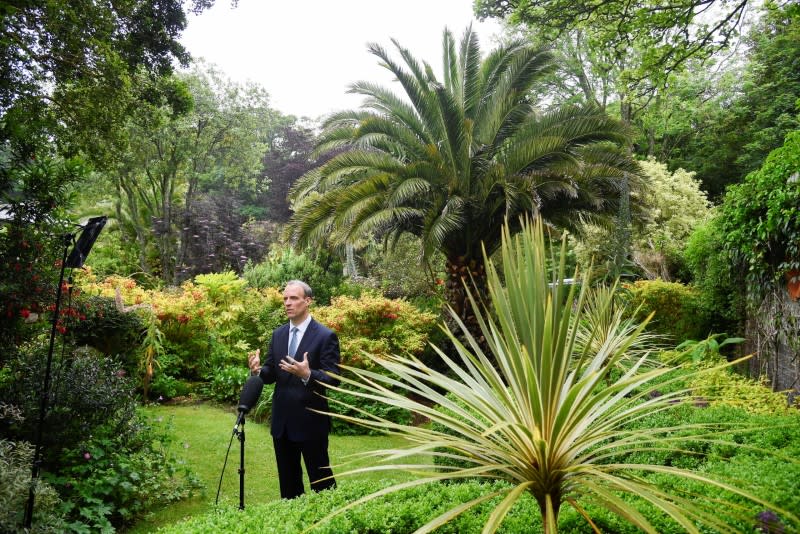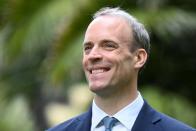Exclusive-UK's Raab: No doubt some countries are using vaccines a geopolitical tool
By William James
CARBIS BAY, England (Reuters) - British foreign minister Dominic Raab said on Friday there was no doubt some countries were using vaccines as diplomatic tool to secure influence, and that Britain did not support so called 'vaccine diplomacy.
Asked in a Reuters interview whether he was concerned that China and Russia could use vaccines in exchange for influence in parts of the world, he said: "There's no doubt there's some of this is going about, and we don't support vaccine diplomacy, let alone blackmail.
"We think that we've got a moral duty, but also a strong vested interest in getting the world vaccinated," he said, speaking on the sidelines of a G7 summit in Cornwall, England.
"We would only think it was responsible to be promoting vaccines that the WHO has sanctioned as safe to distribute.
"But it's a team effort. And we want the countries like China and Russia to come together to tackle the problems of pandemic, but also climate change, and also to respect the basic principles of international law."
China currently has two WHO-approved COVID-19 vaccines, while a Russian-developed shot is waiting approval. Russia said last week it expected that approval in the next couple of months.
British Prime Minister Boris Johnson expects the G7 to agree to donate 1 billion COVID-19 vaccine doses to poorer countries during its summit, and help inoculate the world by the end of next year. The United States has promised to donate 500 million doses with no strings attached.
Raab said Britain's contribution would also come with no strings attached, with at least 80% being distributed by the COVAX international vaccine initiative.
He said the rest would be provided to "strategic close countries where we have a particular relationship, and no, we don't insist on conditionality."
Raab also said he would be speaking to Russian Foreign Minister Sergei Lavrov 'shortly', without giving a specific date for the meeting. He declined to comment on issues he would raise at that meeting.
Nevertheless Raab criticised Russia as a leading proponent of cyber attacks, calling for the G7 to take a united stand against all such incidents, whether conducted by state or non-state actors.
"These activities are contrary to international law, many of them, and they're very damaging, some of them are done for pure theft, or for profit, others are done just to create havoc," he said.
"We ought to be clear as an international community that cyber attacks on hospitals, on schools, on critical national infrastructure - that's wrong. That's unjustifiable, it's beyond the pale."
Asked about the recent forced landing of a civilian aircraft in Belarus, Raab said the country was slipping "into pariah status".
"We need Belarus to step up and live up to the basic, fundamental, cardinal rules of international law," he said.
(Reporting by William James; editing by Michael Holden/Guy Faulconbridge)

 Yahoo Finance
Yahoo Finance 